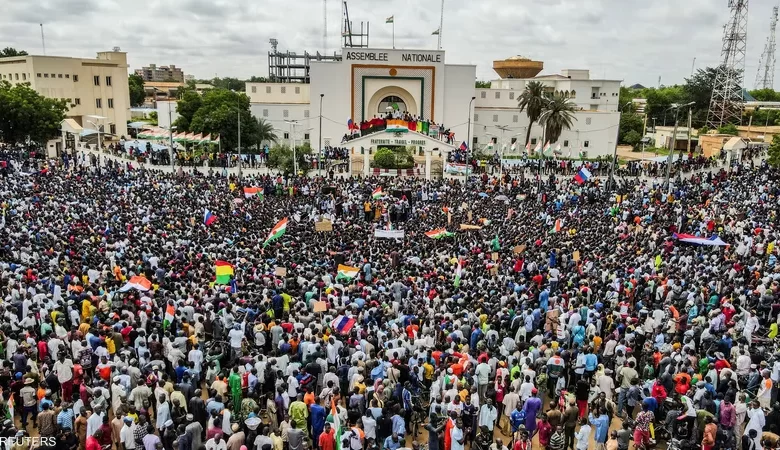Limited Options: Escalating Crisis in Niger and New Conflict Eruption in Africa
The crisis in Niger has worsened, leading to the outbreak of a new conflict hotspot in Africa

West African leaders began meeting on Thursday to discuss the next steps after the military council in Niger defied the deadline to reinstate the ousted president of the country. However, analysts suggest that the West African regional bloc known as ECOWAS might be running out of options as military intervention support diminishes, indicating the eruption of a new conflict hotspot in Africa.
Mediation Efforts
According to the US news agency Associated Press, it is expected that nine of the eleven heads of state from the ECOWAS member countries will attend the crucial talks resumed at the ECOWAS summit in neighboring Nigeria. These leaders include heads of state from Senegal, Ghana, Ivory Coast, Togo, Benin, Guinea-Bissau, and Sierra Leone. The closed meeting was also attended by leaders from Mauritania and Burundi, outside the West African Economic Community.
With the Niger military council rejecting most of the mediation efforts, an analyst noted that Russian involvement in the country has increased over the past two weeks since rebel soldiers ousted democratically elected President Mohamed Bazoum. Bazoum refused to step down and is currently under house arrest.
The military council announced the formation of a new government on Wednesday, with civilians filling more than half of the 21 positions; the rest were military appointments.
As per the American agency, Niger is seen as the last country in the Sahel region south of the Sahara Desert where Western powers can cooperate to combat the jihadi violence linked to Al-Qaeda and ISIS, which has resulted in thousands of deaths and millions of displacements. The international community is striving to find a peaceful solution to the leadership crisis in the country.
Ouladindi Ario, a security analyst in Nigeria, stated: “Let me tell you, any successful coup lasts after 24 hours, came to stay. So, as it stands, they are speaking from the point of strength and advantage, so negotiations must be done according to their terms.”
Limited Options
Niger’s President Bola Ahmed Tinubu leads the efforts of the Economic Community of West African States (ECOWAS). On Wednesday, a Nigerian delegation led by Emir of Kano, Muhammadu Sanusi, met with the leader of the military council, General Abdulrahman Chioma, in neighboring Nigeria. Sanusi was one of the few individuals allowed to meet with Chioma. Deputy Acting US Assistant Secretary of State for African Affairs, Victoria Nuland, also met with the coup leaders earlier this week but was denied access to both Chioma and Bazoum. Additionally, a separate delegation composed of the Economic Community of West African States, the United Nations, and the African Union was barred from attending.
The American magazine Foreign Policy reported that the West African regional bloc has failed to counter previous coups across the region, and Niger is the fourth country in the 15-member bloc to experience a coup in the past three years. The bloc imposed economic sanctions, travel bans, and even threatened military intervention if Bazoum was not reinstated by the Sunday deadline. The military council ignored the deadline, and there is little indication that the coup leaders are willing to back down from their stance. Bazoum claims to be under house arrest along with his wife and son.
An adviser to Bazoum, who was not authorized to speak on the matter due to its sensitivity, revealed that the family is without water and electricity and surviving on rice and canned goods due to a shortage of food.
Ferhan Haq, Deputy Spokesperson for the United Nations, stated that he is greatly concerned about reports of “dire living conditions” for Bazoum and his family and called for the immediate release of the president.
Andrew Lebovich, a researcher at the Carnegie Endowment for International Peace, explained that as the military council solidifies its position, negotiation options have become limited.
He added, “It’s very hard to determine what that will produce, but the fact that the initial deadline passed without intervention and that the military council has continued to take fairly consistent steps indicates that they think they can withstand this pressure.”
The American magazine highlighted that the main parties’ positions are dangerously divergent, according to the International Crisis Group. Since taking power, the military council severed ties with France and capitalized on popular grievances against their former colonial ruler to garner support for its base.












